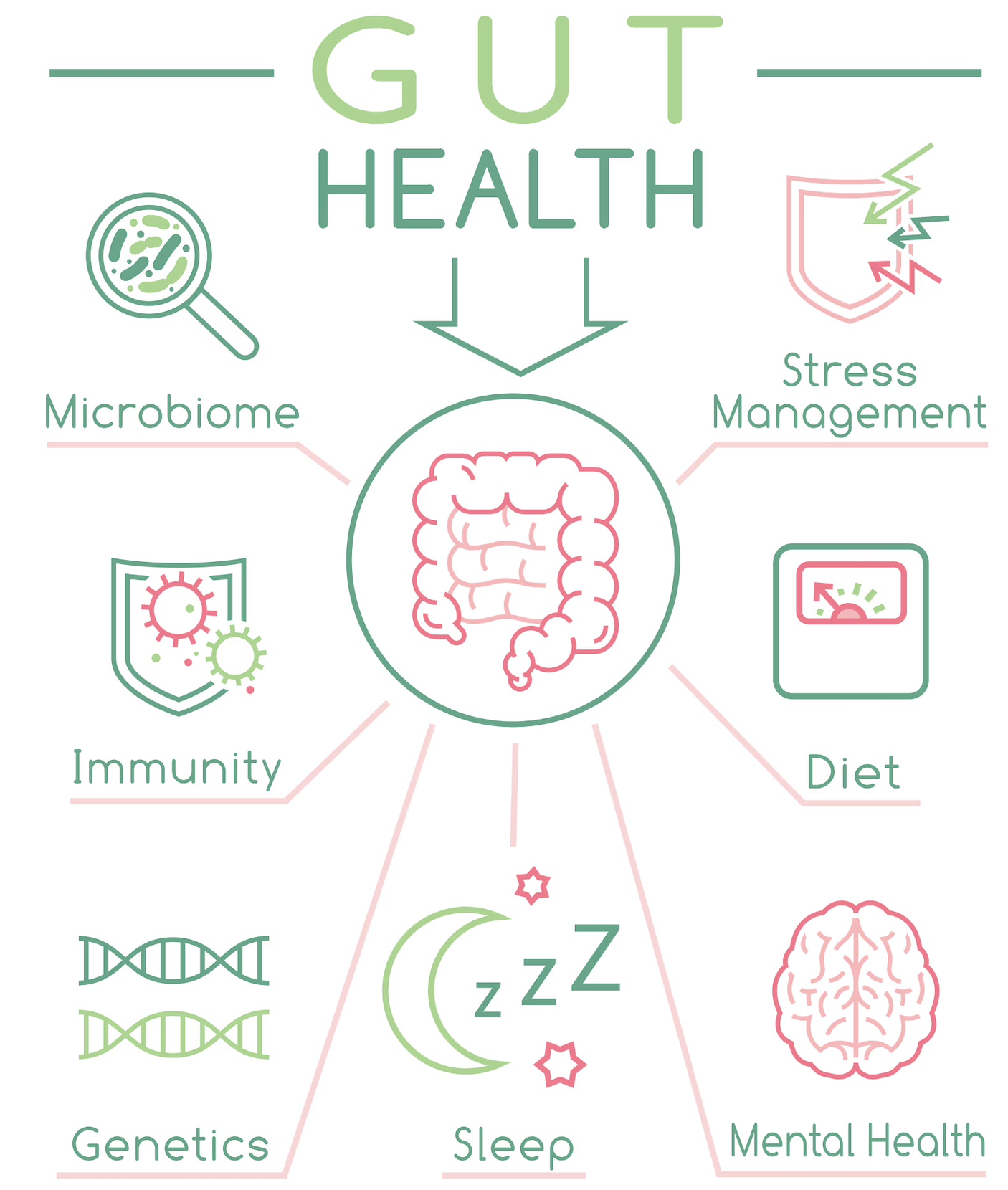What is Gut Health?Updated 15 days ago
Gut Health = HEALTH.
Gut Health is the health, strength and efficiency of the digestive tract, intestinal systems and everything they control and interact with. Gut health refers to the overall well-being and balance of the gastrointestinal (GI) tract, which includes the stomach, small intestine, large intestine (colon), and associated organs. A healthy gut plays a crucial role in digestion, nutrient absorption, immune function, and overall health.
Several factors contribute to gut health, including:
1. Microbiota: The gut is home to trillions of microorganisms, including bacteria, viruses, fungi, and other microbes, collectively known as the gut microbiota. A diverse and balanced microbiota is essential for maintaining gut health and supporting various physiological functions.
2. Gut barrier function: The lining of the gut forms a barrier that selectively allows nutrients to pass into the bloodstream while preventing harmful substances, toxins, and pathogens from entering the body. An intact gut barrier is essential for protecting against infections, inflammation, and autoimmune disorders.
3. Digestive enzymes: Enzymes produced by the body and certain gut bacteria help break down food components, such as carbohydrates, proteins, and fats, into smaller molecules that can be absorbed and utilized by the body.
4. Immune function: The gut-associated lymphoid tissue (GALT) houses a significant portion of the body's immune cells and plays a crucial role in immune surveillance and defense against pathogens. A healthy gut helps regulate immune responses and prevents inappropriate immune activation, such as inflammation and autoimmune reactions.
5. Neurological communication: The gut is often referred to as the "second brain" due to its extensive network of neurons and communication with the central nervous system (CNS) via the gut-brain axis. This bidirectional communication influences mood, behavior, and cognitive function, highlighting the link between gut health and mental well-being.
Maintaining gut health involves adopting a balanced diet rich in fiber, fruits, vegetables, and fermented foods, staying hydrated, managing stress levels, getting regular exercise, and avoiding excessive alcohol and tobacco use. Additionally, probiotics, prebiotics, and other dietary supplements may support gut health by promoting a diverse microbiota and enhancing digestive function.